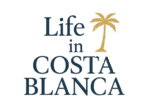Costa Blanca Trip Planning Checklist
Planning ahead is essential when traveling to Costa Blanca especially during peak seasons like summer holidays, Easter, and local fiestas. Hotels and flights can book up quickly, so it’s wise to secure your stay early to get the best rates and locations.
Getting There
Alicante Airport (ALC): The most convenient entry point — just 15 minutes from the city, beaches, and train connections.
Valencia Airport (VLC): A good option if you’re exploring both north Costa Blanca and Valencia city.
Murcia International (RMU): Quieter but ideal if you’re heading to the southern Costa Blanca.
💡 Local Tip: If you land at Alicante, the airport bus (C6) runs every 20 minutes and drops you directly in the city center for just a few euros.
Packing Checklist
Travel Essentials: Passport/ID, boarding passes, travel insurance, and copies of documents.
Clothing: Light outfits for hot days, a light jacket for evenings, and something dressy for dinners or fiestas.
Footwear: Sandals for the beach, trainers for exploring towns, and maybe smart shoes for nightlife.
Sun Protection: High SPF sunscreen, hat, sunglasses, and reusable water bottle (hydration is key in Spanish summers).
Beach Gear: Quick-dry towel, swimsuit, flip-flops, and a beach bag.
Electronics: EU power adapter (Type C/F), portable charger, and SIM card or eSIM if staying long.
Health & Comfort: Medications, small first-aid kit, insect repellent (especially for evenings).
Arrival & On-the-Ground Tips
Emergency Number: Dial 112 anywhere in Spain.
Pharmacies: Marked by a green cross — pharmacists can give advice without a doctor’s visit.
Transport: Public buses and trams are cheap and reliable. Taxis are safe and metered.
Markets: Don’t miss weekly street markets for fresh produce, souvenirs, and local crafts.
Cultural Etiquette: Spaniards eat late, dinners start around 9 pm. Expect lively nightlife and relaxed mornings.
For Long Stays: Register at the town hall (“empadronamiento”) and apply for an NIE if handling rentals or opening a bank account.
Money Matters: Spain is card-friendly, but carrying small cash helps at beach bars or village fiestas.
Extra Local Tips & Emergency numbers
Tap water is generally safe to drink, but many locals prefer bottled or filtered water.
Sundays are quiet most supermarkets close, so plan your shopping.
Learn a few Spanish basics : Hola (Hello), Gracias (Thank you), Por favor (Please), La cuenta por favor (The bill, please) even these simple phrases go a long way in smaller towns.
Ambulance: 061 or 112 Fire Station: 080 or 112 Local police: 092 National police: 091 Guardia Civil: 062
Electricity (Iberdrola 24/7): 902 201 520 Water (Alicante region): Mon-Fri 900 717 717
See our guide Explore the Best of Costa Blanca – Travel & Scouting Guide for must-visit towns, beaches, and attractions.
